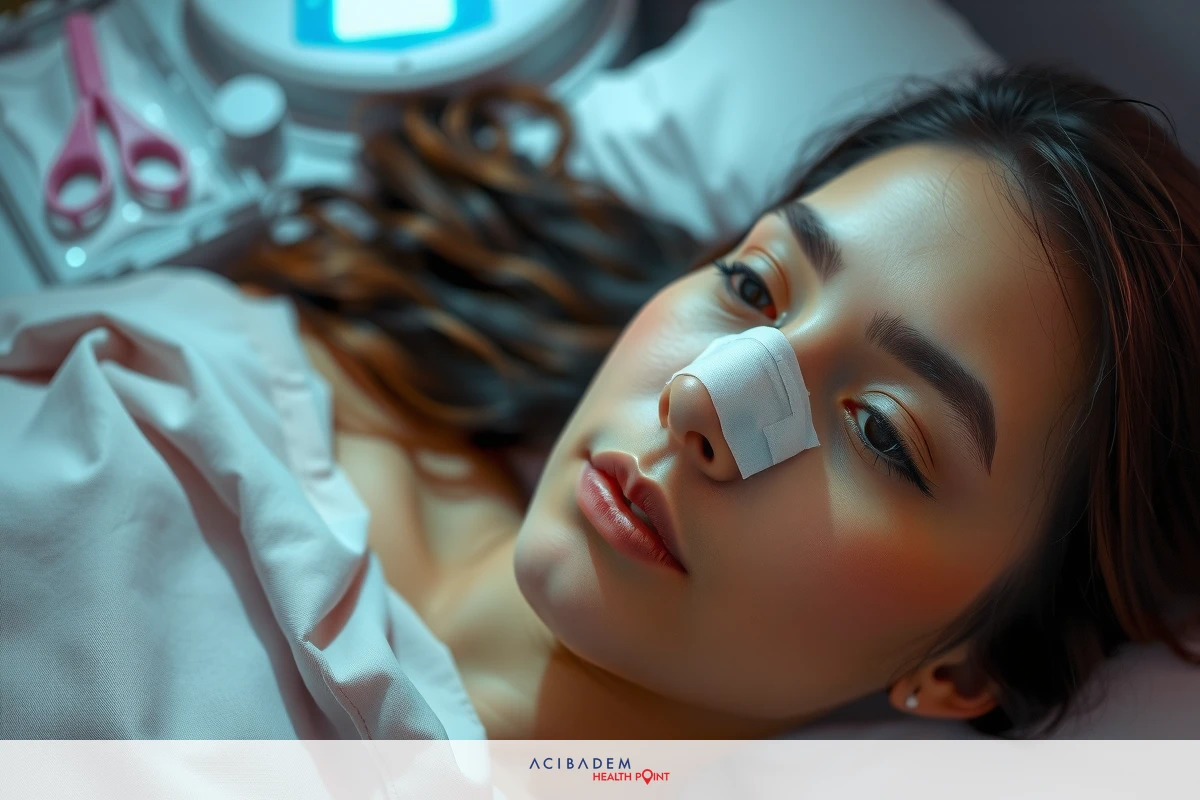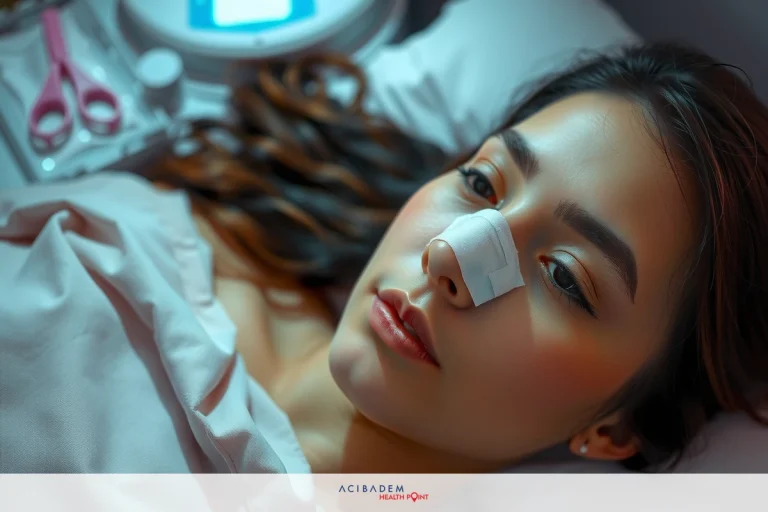What Happens If You Sneeze After Rhinoplasty?
What Happens If You Sneeze After Rhinoplasty? Rhinoplasty, or nose reshaping surgery, demands a well-managed recovery process. A crucial part of this process is understanding what happens if a sneeze occurs after the surgery. While it may seem like a minor concern, sneezing can potentially impact the healing process due to the pressure it places on the surgical area.
This article offers information on why sneezing after rhinoplasty could be problematic, measures to minimize its effects, and when to seek medical advice. It’s essential for anyone who has undergone rhinoplasty to be aware of these aspects to ensure a smooth recovery and optimal results. It’s always wise to consult with your healthcare provider for personalized advice related to your specific circumstances.
Why Sneezing After Rhinoplasty is a Concern
The reason sneezing after rhinoplasty becomes a concern lies in the nature of the surgery itself. Rhinoplasty involves alterations to the structure of your nose, which could be disturbed by the force exerted during a sneeze. The pressure created by
sneezing can potentially affect the surgical site, leading to discomfort or even complications in some cases. Therefore, it’s crucial to understand the potential risks associated with sneezing in the post-operative phase of rhinoplasty.
Post-operative recovery from rhinoplasty requires careful management to ensure optimal results. Sneezing can disrupt this recovery process due to the sudden, forceful expulsion of air through the nose and mouth. For someone who has just undergone nose reshaping surgery, this intense pressure can pose risks. These risks include causing damage to the delicate tissues that are healing, dislodging stitches, or even causing nosebleeds. While these are not frequent occurrences, they are still possibilities that one should be aware of.
Precautions should be taken when the urge to sneeze occurs after rhinoplasty. The ideal way to handle a sneeze is to do so with your mouth open, thereby minimizing the pressure on the nasal passages. In addition, maintaining good overall health can help reduce instances of colds and allergies, which often lead to sneezing. By taking these precautions and understanding why sneezing after rhinoplasty can be concerning, you will be better equipped to manage your recovery process effectively and ensure a positive outcome from your surgery.
Precautions to Take
Post-rhinoplasty, it’s important to take certain precautions to ensure a smooth recovery and minimize the impact of sneezing on the surgical site. While it might not be possible to completely prevent sneezing, especially in cases of allergies or colds, there are steps you can take to ensure it does not interfere with your healing process. Here are some effective measures to consider:
- Sneeze with Your Mouth Open: The idea is to reduce the pressure on your healing nasal tissues. Sneezing with your mouth open significantly reduces this pressure, thus minimizing potential damage.
- Stay Hydrated: Maintaining hydration can keep your nasal passages moist and reduce the urge to sneeze. Regular intake of fluids like water, fruit juices, and herbal tea can be beneficial.
- Avoid Allergens: If you’re aware of specific allergens that cause you to sneeze, try to avoid them during your recovery. This could mean staying indoors during high pollen counts if you’re allergic to pollen or avoiding pets if they trigger allergies.
- Good Hand Hygiene: To minimize the risk of catching a cold that could lead to sneezing, maintain good hand hygiene. Washing your hands regularly can help avoid germs that cause illness.
- Use a Humidifier: Dry air can irritate your nasal passages and throat, leading to sneezing. Using a

A woman lying in a hospital bed with her eyes closed, possibly resting or unconscious. There is medical equipment next to the bed, indicating a healthcare setting. humidifier can help maintain moisture in your environment and reduce sneezing.
- Consult Your Surgeon: If you find yourself frequently sneezing after rhinoplasty, it may be wise to consult your surgeon. They may be able to offer additional advice or medication to manage your symptoms during recovery.
By incorporating these precautions into your post-operative routine, you can better manage potential sneezing episodes and ensure a smoother recovery from rhinoplasty.
When to Seek Medical Advice
While sneezing after rhinoplasty is a common concern, it usually doesn’t lead to serious complications. However, there are certain situations where it may be necessary to seek medical advice. Being aware of these situations can help ensure your recovery process proceeds smoothly and any potential complications are promptly addressed.
If you notice that your sneezing is accompanied by severe pain, excessive bleeding, or if the sneezing is persistent and uncontrollable, then it’s time to consult your healthcare provider. Severe pain could indicate an underlying issue that needs immediate attention. Excessive bleeding could mean that the sneezing has disturbed the surgical site and might require medical intervention. Persistent and uncontrollable sneezing can also pose a risk to the healing process and should be checked by a healthcare professional.
It’s also advisable to seek medical advice if you experience other symptoms along with sneezing. These could include fever, unusual discharge from the nose, or difficulty breathing. Fever could indicate an infection that needs to be treated. Unusual discharge might suggest a problem at the surgical site that requires further investigation. Difficulty breathing is a serious symptom that should be immediately addressed by a healthcare provider.
Overall, while occasional sneezing after rhinoplasty might not be a cause for alarm, it’s important to stay vigilant and monitor your symptoms closely during the recovery period. If in doubt, don’t hesitate to consult your healthcare provider. They can provide you with personalized advice and guidance based on your specific circumstances and ensure your recovery process goes as smoothly as possible. What Happens If You Sneeze After Rhinoplasty?
What Happens If You Sneeze After Rhinoplasty?: Frequently Asked Questions
Can sneezing after rhinoplasty ruin the results of the surgery?
Sneezing itself is unlikely to ruin the results of your rhinoplasty. However, it can potentially disrupt the healing process and cause discomfort or complications. It's important to take precautions to minimize the impact of sneezing on your recovery.
How should I sneeze after rhinoplasty to minimize the risk?
To minimize the risk, it is recommended to sneeze with your mouth open. This helps reduce the pressure on your healing nasal tissues and prevents potential damage.
What should I do if I feel a sneeze coming on after rhinoplasty?
If you feel a sneeze coming on, try to sneeze with your mouth open and avoid any forceful expulsion of air through your nose. You can also use a tissue or handkerchief to cover your mouth and nose, which can help further reduce the impact.
When is it safe to resume normal activities that might trigger sneezing?
The timing for resuming normal activities can vary based on individual healing processes. It is best to consult your surgeon for specific guidelines and recommendations regarding when it is safe to resume activities that may trigger sneezing.
Should I be concerned if I experience a few sneezes in the early stages of my recovery?
A few sneezes in the early stages of recovery are generally not a cause for concern. However, if you notice any severe pain, excessive bleeding, or other unusual symptoms accompanying the sneezing, it is advisable to contact your healthcare provider for further evaluation and guidance.











